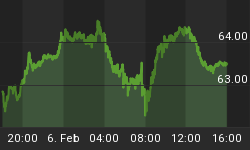Since over-indebted nations must constantly sell bonds to raise capital, Italy and Spain are forced to enter very unfriendly markets. Italy, selling short-term notes this morning, was greeted rather rudely by bond investors. From Bloomberg:
Italy's borrowing costs surged at the sale of 6.5 billion euros ($8.2 billion) of Treasury bills after the 100 billion-euro bailout of Spain's banking system failed to stop contagion from the region's debt crisis. The Rome-based Treasury sold the one-year bills at 3.972 percent, 1.63 percentage points more than the 2.34 percent at the previous auction on May 11. Investors bid for 1.73 times the amount offered, down from 1.79 times last month.
Like many investors, we woke up Monday morning ready to redeploy some cash based on the euphoric response to the weekend bailout for Spanish banks. With a strong rally in Monday's pre-market S&P futures, we expected to see some "risk on" quotes for Spanish and Italian bond yields - no dice. Spanish and Italian bonds yields were up on Monday and Tuesday. They have been up to flat Wednesday morning. Bond yields rise when the perception of risk increases. Not good.
The noisy weekly chart of the S&P 500 below is easy to understand if you look at each piece in isolation. The top portion shows the stock market. The bottom portion shows a momentum indicator, Williams %R (Wm %R). The colored arrows are described in detail below the chart.

- The green arrows show stock market bottoms, or buying opportunities, in 2010 and 2011.
- The red arrows show "it's too early to buy aggressively" signals from Wm %R. In 2010, Wm %R reached -56.86 on a false rally; in 2011 it reached -53.92. That tells us to be careful until Wm %R can close above -53.92 on a weekly basis. The current value is only -63.09 (not there yet).
- The purple arrows show "confirmation" that a bottom is in place. On the subsequent decline in stock prices, Wm %R stayed above -62, which was indicative of slowing downside momentum in stock prices. Significant gains in stock prices followed.
Shifting back to Europe, Spain's Prime Minister Mariano Rajoy and Finance Minister Luis de Guindos are facing questions over the terms of the recent bailout for banks. From the Wall Street Journal:
The loan will add to the government's debt load, and in a testy exchange, opposition-party lawmakers peppered Mr. Rajoy and his ministers with questions about what other conditions the loan will carry. Messrs. Rajoy and de Guindos provided few details. They said the conditions won't stipulate any new macroeconomic reforms for the Spanish economy, instead focusing on restructuring the banking sector. He said the loan would not affect society. But opposition-party lawmakers were unswayed. Socialist Party lawmakers demanded more details and criticized Mr. Rajoy for failing to inform parliament and Spanish society over key policy decisions.
As we noted June 12, given the elevated state of Spanish yields, investors should be prepared for some response from central banks in the next two weeks. Central bank moves marked bullish turning points in 2010 and 2011.
The crisis has moved to areas long feared by European leaders, namely the monster size economies of Spain and Italy. Analysts have used the term "cataclysmic" to describe the implications of having to bail out the Spanish and/or Italian governments. Investors need to respect the narrowing list of policy responses to a debt problem of this magnitude. At some point, similar to the short-lived positive response to the Spanish bank bailout, central banks will take action and the markets will not respond. When that day comes, a full-blown bear market will be on the horizon.
The current market requires constant monitoring of bond yields and central bank activity, as well as flexibility, open-mindedness, and an ego that is in check. With Greeks stepping into the voting booth this weekend, the decision tree for investors is vague at best.
















